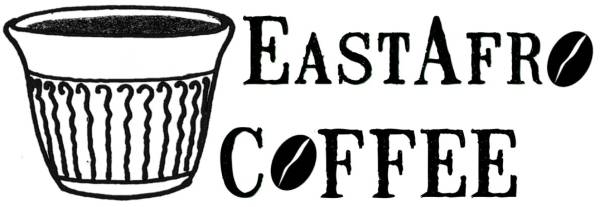A little coffee once in a while
On the one hand, there is the ' natural ' preparation, also known as ' sundried '. called 'unwashed ' or ' dry ' preparation. This is the original method of preparing coffee. The coffee cherries are dried in the sun while turning regularly. This procedure can take a few weeks. This gives the cherry fructose time to absorb into the bean and give it a natural sweetness. The beans are then mechanically removed from their pulp residues and sorted by hand.
The other method is ' washed ' preparation, also called ' fully washed ' or ' wet ' preparation . Before the fermentation process begins, the coffee cherries are crushed in a so-called wet mill and the pulp is removed. The beans are then washed and stored in fermentation tanks for a few days. There, residues on the beans are broken down by natural enzymes. Finally, the beans are washed and laid out to dry.
What influence does the mounting height have?
The higher a coffee cherry is grown, the cooler the average temperature it is exposed to. At cooler temperatures, coffee cherries ripen more slowly, giving them time to develop more complex and pronounced aromas. The coffee plant also has more time to absorb nutrients and minerals from the soil and store them in its fruits.
What does Grade 1 mean?
The classification is defined by the defects and defects that the coffee exhibits. Among other things, so-called Quakers are taken into account, which means unripe and generally insufficiently developed coffee beans. Other factors, such as broken beans or contamination, are also taken into account in the assessment. There are five degrees of coffee.
The first stage Grade 1 represents the highest level of quality and is referred to as specialty coffee. This coffee is almost flawless. The premium coffee is the coffee of the level Grade 2 . Grade 3 coffee represents exchange coffee or trade coffee. The so-called standard coffee is Grade 4 coffee. A coffee with a particularly large number of defects and defective beans is referred to as off-grade coffee and is grade 5.
Where or what is Arabica?
The Arabica Bean has its origins in Ethiopia. In terms of taste, it is described as extremely complex and has a high proportion of coffee oils. Its clearest difference from the Robusta bean is its size, color and shape. The Arabica beans are large and oval-shaped, while the Robusta beans are rather small and rounded. In contrast to the Arabica bean, the Robusta bean has a strong, nutty and rather bitter taste.
Single origin, what?
A Single origin Coffee is single-origin coffee from one growing region. What is crucial for this designation is that the beans all come from one growing region and may not be mixed with other varieties. A Blend Coffee, on the other hand, is a mixture of different varieties and different regions. The beans must be coordinated so that they harmonize with each other and complement each other.
How does the dark roast taste?
The longer it takes to roast, the darker the coffee becomes. The acidity of the coffee and its characteristics continue to decrease, while the roasted aromas continue to increase. A dark roast tastes less sour and slightly bitter. Light roasts often contain a lot of acid in the taste and reflect the characteristics of the respective bean more clearly. In the mild roasting Ideally, both should be combined and neither the fruity-floral or nutty-chocolate properties of the coffee nor the strong roasted aroma should be foregone. The decisive factor is the suitability of the bean and the intention with which the coffee is prepared. For a filter coffee, you often choose a light, mild roast of an Arabica bean, whereas for an espresso, a strong, dark roast of a Robusta bean is more suitable.
We would be happy to add to our list and look forward to your suggestions and questions. Simply contact us using the contact form or by email to info@eastafro-coffee.de.
Your EastAfro Coffee Team.
Gently roasted coffee
-
 Sold out
Sold outBurundi Specialty Grade | Natural
Regular price From €6,80 EURRegular priceUnit price €2,72 / per 100g -
Ethiopia Yirgacheffe Grade 1 | Natural
Regular price From €7,70 EURRegular priceUnit price €3,08 / per 100g -
 Sold out
Sold outLimu coffee | Washed
Regular price From €6,80 EURRegular priceUnit price €2,72 / per 100g -
Ethiopia Yirgacheffe Grade 2 | Washed
Regular price From €6,70 EURRegular priceUnit price €2,68 / per 100g -
 Sold out
Sold outEthiopia Anderacha Grade 1 | Washed
Regular price From €7,60 EURRegular priceUnit price €3,04 / per 100g -
 Sold out
Sold outEthiopia Sidamo coffee
Regular price From €7,20 EURRegular priceUnit price €2,88 / per 100g -
 Sold out
Sold outSidamo coffee grade 1 | Natural
Regular price From €8,00 EURRegular priceUnit price €3,20 / per 100g







